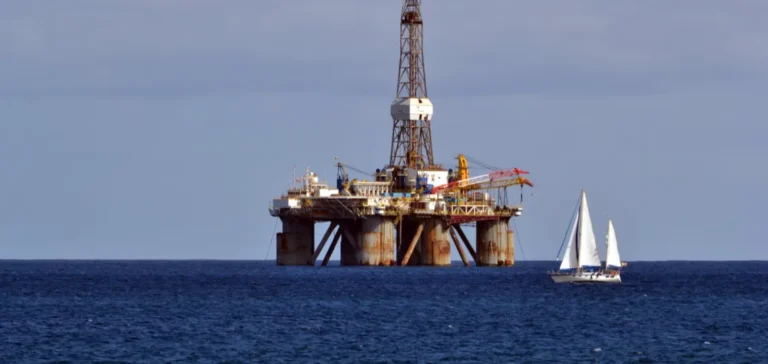French group TotalEnergies SE and US-based Chevron Corporation are currently in talks to acquire a 40% stake in the Mopane oil field, located in deep offshore waters off the Namibian coast. The field, 80% owned by Portuguese company Galp Energia SGPS SA, was the subject of several major discoveries between 2023 and 2024. The proposed deal comes amid a strategic reshaping of the oil sector in Southern Africa, as Namibia emerges as a key exploration zone.
Strategic positioning in the Orange Basin
Offshore blocks in the Orange Basin are drawing increased interest from international oil majors. TotalEnergies, already operator of the nearby Venus field, aims to consolidate its presence through geographic synergies. Chevron views the opportunity as a potential re-entry into the African continent after decades of operations primarily in Nigeria and Angola. The Mopane field is strategically located near existing or planned infrastructure, supporting its integration into broader regional development.
A regulatory framework still under development
Namibia has not yet commenced commercial hydrocarbon production, but offers a regulatory framework based on the South African model, considered favourable to foreign investment. New contract provisions are expected to reinforce local content requirements and state participation. Any asset sale must be approved by the Ministry of Mines and Energy, though no opposition has been signalled to date regarding Galp’s planned divestment.
Restructuring global energy priorities
Amid instability in traditional oil-producing regions, major international companies are redirecting their strategies toward perceived stable areas. Namibia, politically stable and with strong offshore potential, is benefiting from this shift. The partial withdrawal of European firms from countries like Nigeria adds to this momentum. The Mopane field could eventually produce up to 500,000 barrels per day, reshaping Southern Africa’s energy dynamics.
Implications for Galp and asset valuation prospects
Galp Energia aims to optimise its asset portfolio to fund other strategic areas, notably in renewable electricity. The proposed sale of a 40% stake in Mopane, while allowing for partial exit, could reduce its operational influence. The asset’s estimated valuation exceeds EUR2bn ($2.17bn), which would significantly strengthen the Portuguese company’s short-term balance sheet.
Geopolitical and industrial consequences in Africa
Namibia’s emergence as a future hydrocarbon exporter is altering regional power balances. A stronger American presence through Chevron could weaken Europe’s historical dominance in Southern Africa’s energy sector. The International Energy Agency (IEA) has projected that sub-Saharan Africa could account for up to 10% of global oil supply growth by 2035, provided current Namibian projects reach completion.






















